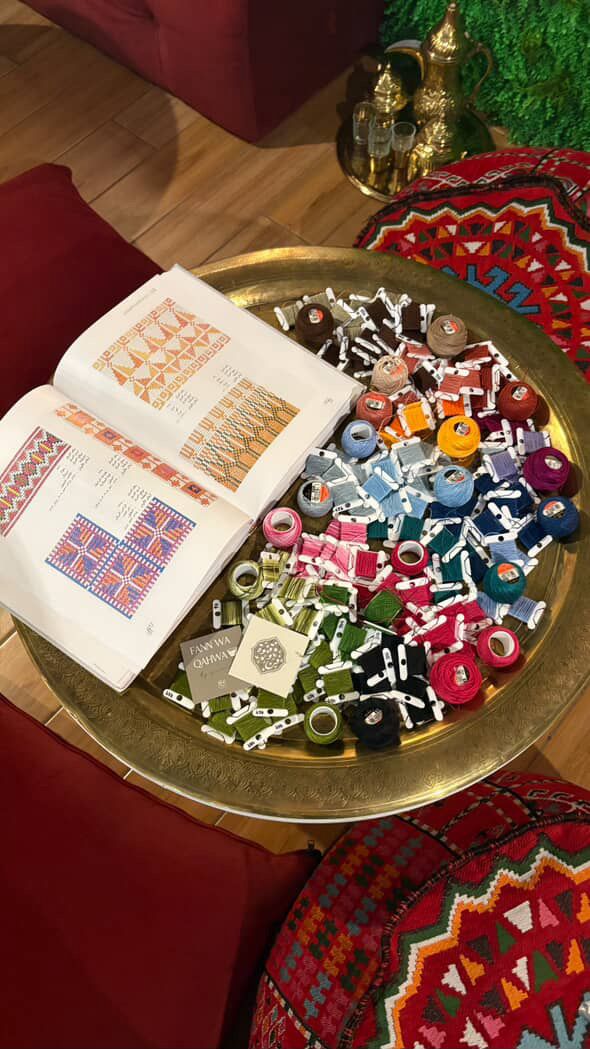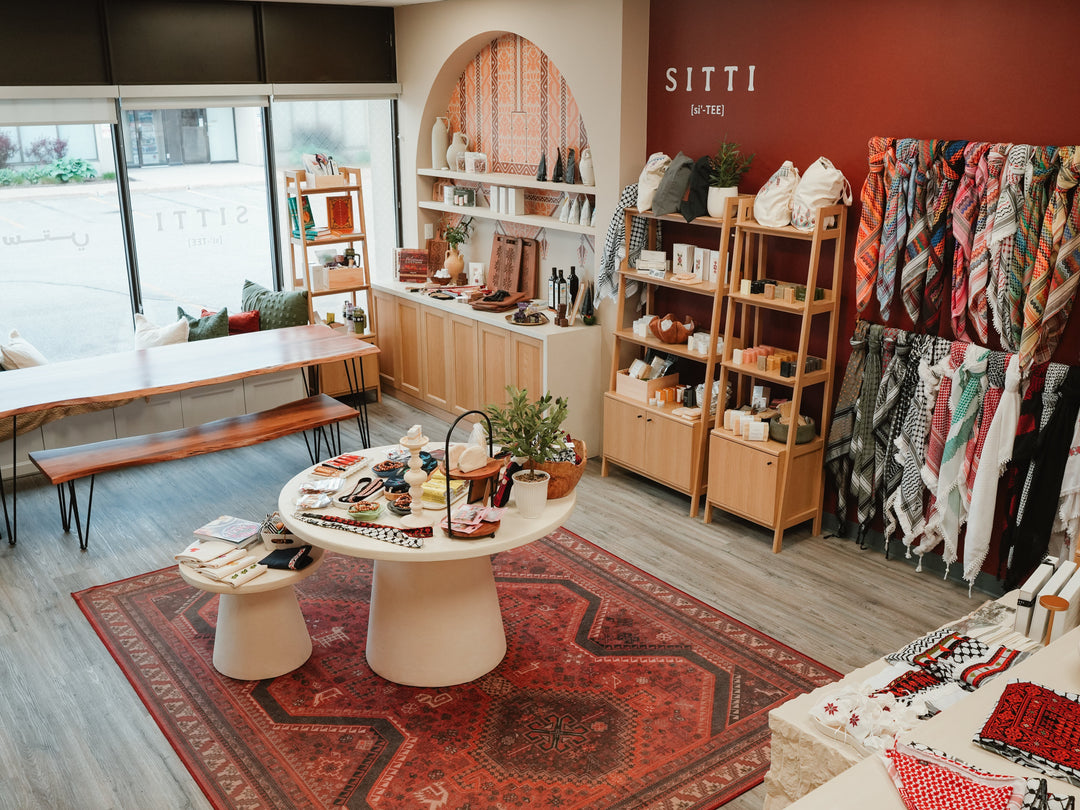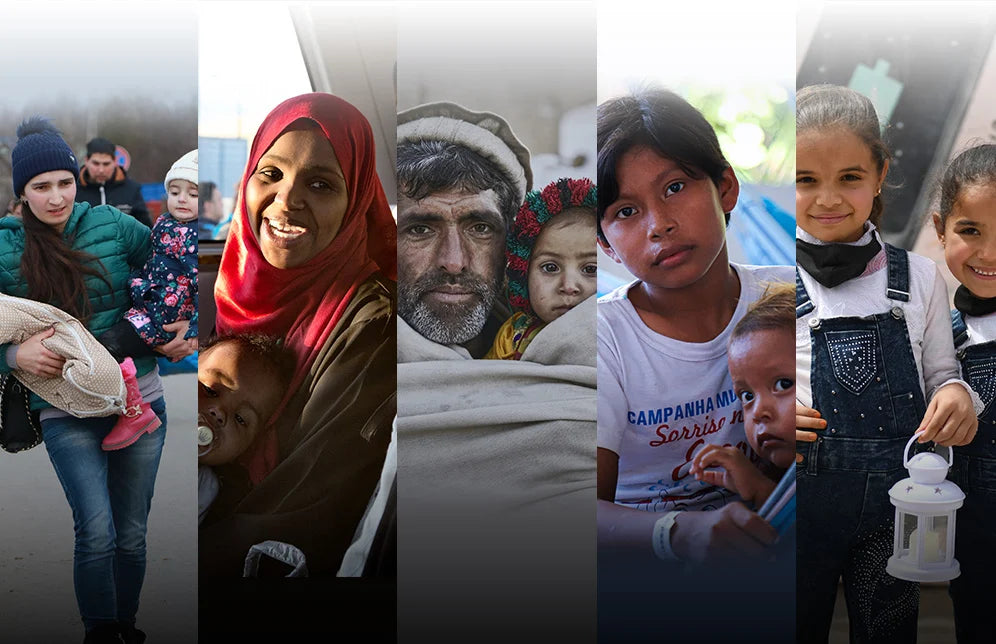Sips with Sitti: S1 E8: “Bringing Local Culture to a Global Marketplace" w/ guest Laura Cretney, CEO of Pink Jinn!

Laura Cretney is a PhD student at Durham University researching diaspora mobilization in the Yemen conflict. Her brand, Pink Jinn, is a socially conscious lifestyle brand inspired by the Middle East and North Africa, which promotes cross-cultural interaction and supports businesses, social enterprises, and charities working with survivors of conflict and vulnerable women in the region. Laura has also worked in the International Development field for over five years, designing and managing projects across the Middle East.
Q: What’s something you like to look for when you are curating different vendors on a global marketplace?
29:20
“So the biggest thing that I look for personally is the story behind it, so I need to be talking to the people, I need to know exactly who I’m talking to, what their relationship to the business is, and I want to hear their story not only so that I understand but so that I can communicate that effectively with our community as well…I think that storytelling is such a huge part of that, knowing where things comes from, you need to understand, you need to know the story, and it helps you to connect with people…we don’t give people enough credit for what an impact that can have in their lives just in terms of understanding the story of where something came from”
- Laura Cretney
Jackie discussing the meaning of Impact
38:00
“The term impact can have a positive or negative connotation, so also using the word impact can sound very nebulous to some people, and impacts can mean a lot of things. You know can also refer to it as support, or, again we can use the term self-reliance, how does it improve or contribute towards self-reliance”
- Jackie
Q: How have you seen long-term impact in the companies, in the artisan collectives that you’ve worked with?
40:46
“Probably the most important thing and something you can implement now, or that you can start to think about now is your relationships. So making sure, thinking about the relationships that you have with people you’re working with your suppliers, with your community, with your beneficiaries if you’re donating to charity, all of the people, all of your different stakeholders, thinking about what do I know about them, how can I strengthen that relationship, how can I learn more, and learn from them about the impact that my business with them whatever it looks like is having”
– Laura Cretney
Jackie adding on to the importance of maintaining strong relationships with artisans and the barriers they face in starting their own business
46:41
“Again having this understanding and compassion, and empathy for the situation that a lot of times is completely out of the hands of these artisans or these collectives which is that they’re faced by all of these structural barriers, right, and whether it’s shipping, you’ve got possibly governments in place who impose a lot of restrictions on exporting, you have obvious socio-economic barriers…and it’s really being just compassionate and saying it’s okay, we’ll manage”
- Jackie
Laura discussing how to navigate politics within the framework of your business
53:40
“Businesses are finding it more and more difficult to stay out of politics so to keep politics out of what they’re doing, I mean politics has always been a part of every single business…but it’s become increasingly difficult to avoid having those political conversations through your business, because there’s this, I feel like especially since the pandemic, there’s this increase in social consciousness of these inequalities and some of these political issues…I think this is something which businesses can kind of harness and should be actually taking advantage of this and stepping back and having a conversation with themselves, with their team and saying, how is our business political, how can we make it political in a positive way to make our business more inclusive and contribute more to an inclusive world”
– Laura Cretney
Noora further adding on to the challenges of politics and working with refugees
55:46
“Even as a company, even as a social enterprise with a mission of self-reliance, employing Palestinian refugees in refugee camps, sometimes working with Palestinians inside of Palestine, we are sometimes put on the spot and asked by customers what our political opinion is, and it’s happened multiple times in the past...as a company we are also very cognizant of anything we do is not just reflective of our a social enterprise, but is a reflection of our artisans that we work with and have to be very sensitive when it comes to the information that we share because we work with marginalized, already marginalized communities…so if we can do anything that can compromise their position in any way, we are putting them at risk…We have to be cognizant of all of our stakeholders, that’ it’s not me and you… so we have to make sure they are okay with it, is this something they would be okay with”
- Noora





Leave a comment